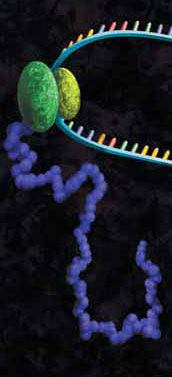
Researchers and clinicians are fairly certain that all cervical cancers are caused by Human Papillomavirus (HPV) infections, and that HPV16 and HPV18 are responsible for about 70% of all cases. HPV16 and HPV18 have also been shown to cause almost half the vaginal, vulvar, and penile cancers, while about 85% of anal cancers are also caused by HPV16.
E6 is a potent oncogene of HR-HPVs, and its role in progression to malignancy continues to be explored. The E6 oncoprotein of HPV can promote viral DNA replication through several pathways. It forms a complex with human E3-ubiquitin ligase E6-associated protein (E6AP), which can in turn target the p53 tumor-suppressor protein, leading to its ubiquitin-mediated degradation. In particular, E6 from HR-HPVs can block apoptosis, activate telomerase, disrupt cell adhesion, polarity and epithelial differentiation, alter transcription and G-protein signaling, and reduce immune recognition of HPV-infected cells.
In a recent publication a new procedure generated a stable, unmutated HPV16 E6 protein (1). The His6-tagged E6 proteins from HPV16, HPV18, and HPV11 E6 genes without any further modification in the amino-acid sequence were produced in bacteria as soluble and stable molecules. Structural analyses of HPV16 His6-E6 suggested that it maintains correct folding and conformational properties. C57BL/6 mice immunized with HPV16 His6-E6 developed significant humoral immune responses. The E6 proteins from HPV16, HPV18, and HPV11 were purified according to a new procedure, and investigated for protein–protein interactions. HR-HPV His6-E6 bound p53, the PDZ1 motif from MAGI-1 proteins, the human discs large tumor suppressor, and the human ubiquitin ligase E6-associated protein, thus suggesting that it is biologically active.
The purified HR-HPV E6 proteins were also characterized to determine if they targeted the MAGI-3 and p53 proteins for degradation. Details for application are as follows: The DNA of pSP64-HPV16 E6, pSP64-p53-pro and pCDNA3-MAGI-3 plasmids was transcribed and translated in vitro in a rabbit reticulocyte lysate (TNT System with radiolabeling with 0.6 mCi/mL 35[S]-cysteine. The translation efficiency was monitored by analyzing 1µL aliquots of each protein using SDS-PAGE and PhosphorImager analysis.
In the standard in vitro degradation assay degradation was monitored by mixing the translated target proteins with 50 ng of the purified His6-E6 protein at a 3:1 ratio with an incubation at 25 °C. After 1 h and 2 h, 5-µL aliquots were removed from the reaction mixtures and analyzed. The samples were added to 5X loading buffer boiled and analyzed using SDS-PAGE and autoradiography.
The degradation experiments were carried out three times, and the relative quantification was performed with a PhosphorImager by measuring the signal intensities of protein bands.
When MAGI-3 was combined with HPV16 or HPV18 His6-E6, a very weak band for MAGI-3 was seen at T1 that had almost disappeared at T2. In contrast, this band was seen at both T1 and T2 for HPV11 His6-E6. Similar results were observed with p53, where a very weak p53 band was seen at T1 for all three HPV His6-E6 proteins, but only for HPV11 His6-E6 at T2. As controls, MAGI-3 and p53 proteins were incubated in the absence of His6-E6 and the in vitro translated HPV16 E6 protein alone was used in the incubations.
Literature Cited
Illiano, E. et al. (2016) Production of functional, stable, unmutated recombinant human papillomavirus E6 oncoprotein: implications for HPV-tumor diagnosis and therapy. J. Transl. Med. 14, 224–38.
